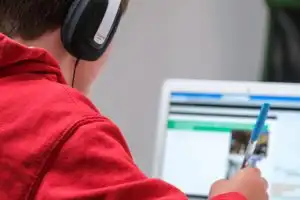In most of my blogs about Pyrus, I’ve focused on the workplace. That’s where we adults tend to think about task management and automating workflows. However, we’re not the only ones for whom task and time management matters. Kids need to manage their time too! In this blog, I’ll explore why it’s important for kids to get organized and how Pyrus can support them.
Why Kids Need Time Management
As this guide from Scholastic explains, kids have a lot of responsibilities to balance in their lives. When students come home from school, they have only a few hours before bedtime. In that window of time, they might try to do homework, have a playdate, spend time with family, and/or play sports. Balancing these tasks might seem like a joke to adults, but it’s a serious challenge for young ones. Childhood is the best time to start developing lifelong time management skills. That way, kids can grow up prepared for their future.
This article is written for kids to explain time management. It defines this concept as a set of skills that help kids “complete tasks on time.” In the words of this article, kids need to learn how to get through homework and chores so that they can have time to play! From the perspective of a parent, this is also a huge opportunity for growth. According to this article from Kids Health, children who learn to stay organized don’t just gain valuable skills. They’re also building independence and confidence in their own abilities.
Children with learning disabilities might benefit most from learning time management strategies. According to this article about time management for these kids, setting achievable tasks is critical. I wrote about achievability in this earlier post about goal setting. It’s also wise to break tasks down into chunks, something I advocated for here. According to this article from Understood, kids with learning differences should use to do lists. (Hint: Pyrus can help kids bring all this together!)
Starting Young
Teaching time management to kids can start early. Scholastic gives tips for teaching children in 3rd through 5th grade how to get started. For instance, kids should learn how to plan out their time. They can beat back procrastination by breaking big projects or book reports into chunks. In addition, they can get a sense of prioritizing. According to this article, using checklists and establishing a regular routine can also help kids get organized.
As I wrote in this blog post about habits, it’s hard to rewire your brain once a habit is formed. That’s why Verywell Family's advice is to make time management a fun habit right away! They encourage using a fun tool (like an app!) to get kids interested. Plus, time management isn’t all about annoying or challenging tasks. Children can learn about the importance of breaks and schedule them into their afternoons too! This article from TIME concurs that teaching these skills is super meaningful. It also suggests that one advantage of using apps is that they’re accessible anywhere you go!
Teens and Time: The Right Tools Matter
Of course, not all young kids have access to phones, but as children age, many do get smartphones. In my last blog about smartphones, I discussed the ways that phones can help us work better. Well, they can also help students manage their time right. This article for middle schoolers and this one for teens both encourage organization and time management skills. They both note that minimizing distractions is key. Phones can be a huge source of distraction, of course. But, on the other hand, they can really boost productivity.

The College Board compiled a slideshow of tips for college-bound high schoolers that can work well for teens with phones. For instance, the first tip encourages students to keep a running to do list. An app like Pyrus can make that easy peasy! In addition, the College Board suggests using spare time on the go, like time on a bus or in a waiting room, to get things done. Again, that’s easier if your tasks are right there on your phone. The tips do also include reminders to budget your time wisely, check procrastination at the door, and get good sleep! (I emphasized the importance of sleep in this earlier post.) No app or tool will work for you if you don’t set yourself up for success, of course.
How Pyrus Helps Kids Plan for Productivity
As I’ve mentioned a few times, Pyrus can serve as a great starting point for kids to learn task and time management. I talked to Eve, a middle school student who’s used Pyrus for school, about why she likes the software. She told me, “When school started again on Zoom, we needed something to help with the organization of it.” When she found Pyrus, Eve just added in tasks for all her homework assignments. She said she really liked that when she opened the app, she could see all her tasks, organized by due date. She’d tried plenty of other apps before, but nothing helped her stay on top of her school work as much as Pyrus did.
After hearing Eve's rave review, I’m pretty convinced. Pyrus is a great way for kids to start managing their time and getting organized. If you’re a parent, check out this free tool to help your kids start building critical skills for their present and future. They’ve got a lot to gain from this easy to use, intuitive task management platform!